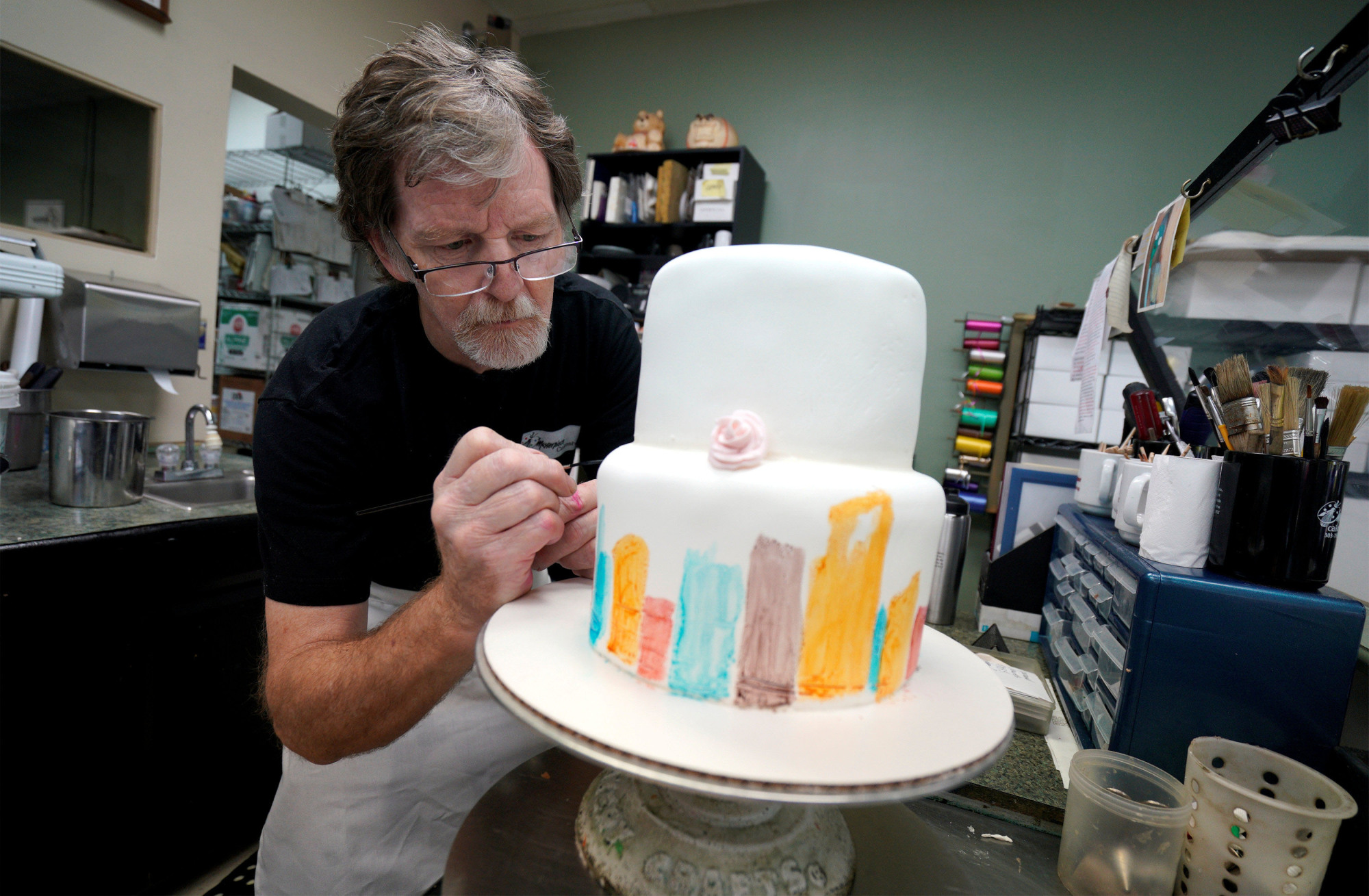The conversation about a cake lasted less than a minute but will long reverberate in constitutional law. On Tuesday, the Supreme Court is scheduled to hear 60 minutes of speech about when, if at all, making a cake counts as constitutionally protected speech and, if so, what the implications are for the Colorado Civil Rights Commission's contention that Jack Phillips violated the state's law against sexual-orientation discrimination.
Phillips, 61, is a devout Christian and proprietor of Masterpiece Cakeshop in Lakewood, Colorado, where he works as — his description — a cake artist. Charlie Craig and David Mullins entered his shop to order a cake to celebrate their wedding. Phillips said that although he would gladly make cakes for gay people for birthdays or other celebrations, he disapproves of same-sex marriage on religious grounds, and so does not make cakes for such celebrations. (He also refuses, for religious reasons, to make Halloween cakes.) To be compelled to do so would, he says, violate his constitutional right to speak freely. This, he says, includes the right not to be compelled to contribute his expressive cake artistry to a ceremony or occasion celebrating ideas or practices he does not condone. Well.
The First Amendment speaks of speech; its presence in a political document establishes its core purpose as the protection of speech intended for public persuasion. The amendment has, however, been rightly construed broadly to protect many expressive activities. Many, but there must be limits.


















With your current subscription plan you can comment on stories. However, before writing your first comment, please create a display name in the Profile section of your subscriber account page.